July 7, 2023
AI An Accelerator Of Innovation Or A Risky Proposition

In the spectrum of AI, where do we land? Is AI a behemoth ready to take over the world, or is it a catalyst for increased productivity and an accelerator for innovation? After exploring and dissecting the vast landscape that AI encompasses, I propose it is more of the latter.
The prevalence of AI in today's world is beyond dispute, with Microsoft leading the charge as a critical advocate. The tech titan's 2019 investment of $1 billion in AI initiatives, followed by an extended partnership with OpenAI in 2023, demonstrates the company's commitment to harnessing AI's capabilities. A significant outcome of this partnership is the Microsoft Azure OpenAI service, which marries the potential of OpenAI models with Azure’s robust, enterprise-grade infrastructure.
Despite its recent mainstream adoption, AI is not a novel concept. Its many forms and applications, from Natural Language Processing and Visual Processing to Data Analysis and Automation tools, have been part of our technological backdrop for some time. Yet, their use isn't always straightforward; many of these tools require a steep learning curve to exploit their full potential.
Among these AI technologies, Large Language Models (LLMs), like OpenAI's GPT and Google's Bard, have garnered substantial attention. LLMs' predictive prowess allows for remarkable applications like drafting human-like text. However, let's not be too hasty to deem this the dawn of a new era. It's crucial to remember that these models are, at their core, prediction engines. While their capabilities are thrilling, they aren't infallible. LLMs can deliver inaccurate, misleading, or even blatantly false information, thus necessitating human intervention for quality control.
Although the integration of AI technologies will undoubtedly fast-track innovation and boost productivity, the importance of the human touch is still intact. We must strike a balance between human intuition and AI's analytical precision to ensure the reliability and credibility of the outcomes.
We cannot overlook the looming concerns associated with the use of LLMs. Issues of plagiarism, intellectual property theft, and malevolent exploitation cast a shadow over the bright prospects of AI. The relatively easy access to these powerful models can be a double-edged sword. It's here that AI vendors need to step in and take a hard look at their user policies.
In this context, I believe services like ChatGPT should be more restrictive. Access to extensive LLM functionalities should be granted only after a stringent identity verification and validation process, thereby decreasing the potential for misuse by ill-intentioned actors.
It's clear that AI is more of a tool for progress than a harbinger of a robot-dominated future. It's an ally, an accelerator of innovation, and a productivity powerhouse. While it carries its share of risks, thoughtful regulation and a human-in-the-loop approach can mitigate these. As with any tool, the potential for harm or benefit lies not within the tool itself but in the hands of the user. Hence, we should not fear AI but rather embrace it judiciously, treating it as an indispensable collaborator in our quest for a more efficient and innovative future.
hashtag#ai hashtag#azureopenai hashtag#openai hashtag#AI hashtag#ArtificialIntelligence hashtag#Innovation hashtag#Productivity hashtag#EthicsInAI hashtag#technology
https://www.linkedin.com/pulse/ai-accelerator-innovation-risky-proposition-ryan-mangan-fbcs-citp/
